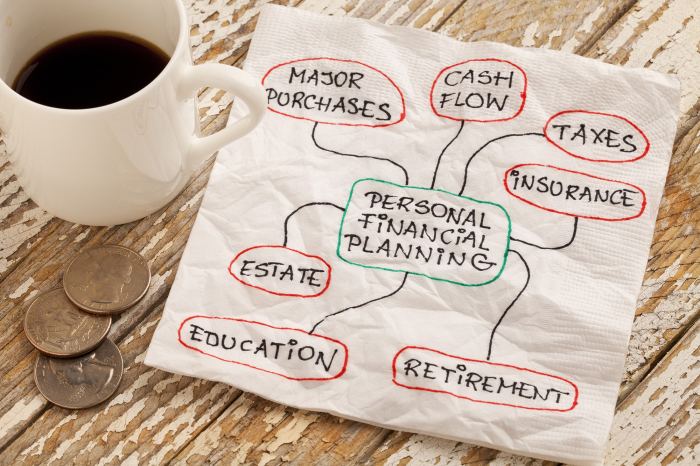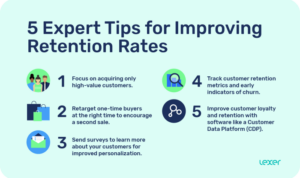Improving Personal Finance is essential for securing a stable financial future. From budgeting techniques to saving strategies, this guide will help you navigate the world of personal finance with confidence and ease.
Whether you’re a budgeting novice or looking to enhance your investment portfolio, these tips and strategies will set you on the path to financial freedom.
Understanding Personal Finance: Improving Personal Finance

Personal finance management is crucial for individuals to achieve financial stability and security. It involves making informed decisions about budgeting, saving, investing, and managing debt to ensure a healthy financial future.
Key Components of Personal Finance, Improving Personal Finance
- Budgeting: Creating a budget helps individuals track their income and expenses, allowing them to prioritize spending and save for future goals.
- Saving: Setting aside a portion of income for emergencies, short-term goals, and retirement is essential for building financial resilience.
- Investing: Investing in assets such as stocks, bonds, and real estate can help grow wealth over time and beat inflation.
- Managing Debt: Understanding and managing debt responsibly is crucial to avoid financial stress and maintain a good credit score.
Impact of Good Financial Habits
- Good personal financial habits can lead to greater financial security and independence, reducing stress and anxiety related to money.
- By practicing sound financial management, individuals can achieve their long-term financial goals, such as buying a home, starting a business, or retiring comfortably.
- Building a strong financial foundation through proper budgeting, saving, and investing can provide a sense of control over one’s financial future.
Budgeting Techniques
Budgeting is a crucial aspect of personal finance that helps individuals manage their money effectively. There are various budgeting methods that can be utilized to create a realistic and sustainable financial plan.
Zero-Based Budgeting
Zero-based budgeting is a method where income minus expenses equals zero. Every dollar earned is allocated to expenses, savings, or debt repayment. This approach ensures that every dollar has a specific purpose, leaving no room for overspending.
50/30/20 Rule
The 50/30/20 rule suggests allocating 50% of income to needs, 30% to wants, and 20% to savings or debt repayment. This method provides a clear guideline on how to divide income to cover essential expenses, discretionary spending, and savings goals.
Envelope System
The envelope system involves dividing cash into different envelopes designated for specific spending categories, such as groceries, entertainment, and transportation. This method helps individuals limit their spending within each category and prevents overspending.
Tips for Creating an Effective Budget
- Start by tracking your expenses to understand where your money is going.
- Set realistic financial goals to give your budget a clear direction.
- Prioritize essential expenses such as bills, groceries, and debt payments.
- Review and adjust your budget regularly to accommodate changes in income or expenses.
Tracking expenses and adjusting budgets as needed are essential steps in maintaining financial stability and achieving long-term financial goals.
Saving and Investing Strategies
When it comes to personal finance, saving and investing are two crucial components that can help you build wealth over time. While saving involves setting aside money for future use, investing is about putting your money into assets with the expectation of earning a return.
Difference between Saving and Investing
Saving is typically done with the goal of preserving capital and ensuring liquidity, while investing involves taking on some level of risk in order to potentially grow your wealth.
Short-term and Long-term Saving Goals
- Short-term saving goals: Saving up for a vacation, emergency fund, or purchasing a new electronic device.
- Long-term saving goals: Saving for retirement, buying a home, or funding a child’s education.
Various Investment Options and Risks
There are several investment options available, each with its own level of risk and potential returns:
- Stocks: Investing in individual company stocks can offer high returns but also comes with high risk due to market volatility.
- Bonds: Bonds are considered safer investments than stocks, providing a fixed income stream, but with lower potential returns.
- Real Estate: Investing in real estate can offer both rental income and property appreciation, but it requires significant capital upfront and comes with maintenance costs.
- Mutual Funds: Mutual funds pool money from multiple investors to invest in a diversified portfolio of stocks, bonds, or other securities, reducing risk through diversification.
Debt Management

Managing debt is crucial for maintaining financial stability and building a strong foundation for your future. By implementing effective strategies, you can pay off debt efficiently and avoid falling into a cycle of financial stress.
Strategies for Paying Off Debt Efficiently
- Snowball Method: This strategy involves paying off your debts from smallest to largest, regardless of interest rates. By focusing on clearing smaller debts first, you gain momentum and motivation to tackle larger debts.
- Avalanche Method: With this approach, you prioritize paying off debts with the highest interest rates first. By targeting high-interest debts, you can reduce the overall amount of interest you pay over time.
- Debt Consolidation: Consolidating multiple debts into a single loan with a lower interest rate can simplify your payments and potentially reduce the total amount you owe. However, it’s essential to carefully consider the terms and fees associated with debt consolidation.
Tips for Avoiding and Managing Debt Effectively
- Create a Budget: Establishing a budget helps you track your expenses, identify areas where you can cut back, and allocate funds towards debt repayment.
- Build an Emergency Fund: Having an emergency fund can prevent you from relying on credit cards or loans to cover unexpected expenses, reducing the risk of accumulating more debt.
- Avoid Impulse Spending: Practice mindful spending and avoid making impulsive purchases that can lead to unnecessary debt.
Impact of High-Interest Debt on Personal Finances
High-interest debt, such as credit card debt or payday loans, can significantly impact your personal finances. The high interest rates associated with these debts can quickly accumulate, making it challenging to pay off the principal amount. This can result in a cycle of debt that hinders your financial goals and limits your ability to save and invest for the future.
Hey, do you want to know more about making money online? Check out this Affiliate Marketing Guide that will show you the ropes on how to start earning some extra cash from the comfort of your own home. It’s a great way to hustle and make some dough on the side, so don’t miss out on this opportunity!
Yo, check out this dope Affiliate Marketing Guide I found online. It’s like a roadmap to making money while chillin’ at home. You can learn all the tricks of the trade and start hustlin’ in no time. Don’t sleep on this opportunity, fam!












